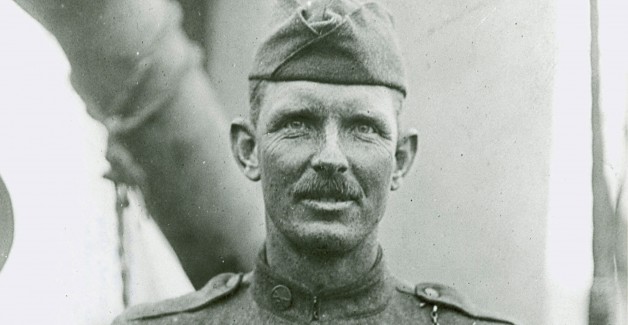“This is a modest book with an immodest purpose: to convince Christians that war has been abolished. The grammar of that sentence is very important: the past tense is deliberate. I do not want to convince Christians to work for the abolition of war, but rather I want us to live recognizing that in the cross of Christ war has already been abolished.”
—Stanley Hauerwas, War and the American Difference
Although I am not a pacifist, there are certainly compelling reasons for being one. In the first place, Jesus seems to recommend the practice on a number of occasions, as when he refuses permission to James and John to call down fire from heaven to consume the Samaritan town that rejected Jesus (Luke 9:51-56); or when he rebukes Peter in the Garden and heals the servant whose ear had been cut off (Luke 22:47-53). Most powerfully, Jesus refuses to call down angels to save him before Pilate and, instead, suffers crucifixion for the sins of the world. This act of non-violence is what saves the world from sin and death, and it is this act that Hauerwas argues should be the paradigm for all Christian practice.
Hauerwas’s position is not unique. Richard Bauckham has described the Book of Revelation as a “Christian War Scroll.” He says the author of Revelation “aims to show that the decisive battle in God’s eschatological holy war against all evil, including the power of Rome, has already been won—by the faithful witness and sacrificial death of Jesus. Christians are called to participate in his war and his victory—but by the same means he employed: bearing the witness of Jesus to the point of martyrdom.” The warriors of the New Testament, according to Bauckham, are the “white robbed army of martyrs” that we sing about in the Te Deum. This emphasis on martyrdom as the Christian practice is echoed by Hauerwas: “I really believe, since I’m a Christian, that you always live in a world at risk. Indeed, what Christianity is about, is always learning how to die early for the right reasons.”
To me there is something deeply compelling about this Christian vision of peace, based on the sacrificial death of Jesus and the martyrs re-enactment of it, especially given the history of the early Church. It reminds me of the similarly strong sense of sympathy I have when I see Amish people along the side of the road or at a country market. Their witness to a simple life has a certain feeling of truth to it. And yet, for all that I have not thrown away my computer or my razor. In the same way, although I feel strong sympathy for the pacifist position, I am not among its adherents. Why is this?
C. S. Lewis may have given the best anti-pacifist argument in a short essay entitled, “Why I am not a Pacifist.” He concludes,
“[In trying to become a pacifist,] I should find a very doubtful factual basis, an obscure train of reasoning, a weight of authority both human and Divine against me, and strong grounds for suspecting that my wishes had directed my decision . . . It may be, after all, that Pacifism is right. But it seems to me very long odds, longer odds than I would care to take with the voice of almost all humanity against me.”
The human and Divine authority he is citing includes the venerable “Just War” tradition developed by St. Augustine and taught by St. Thomas. In the Summa Theologiae St. Thomas maintains that there are three conditions necessary for a just war: first, it must be conducted by the proper authorities (no mob rebellions allowed); second, a just cause is required, “namely, that those who are attacked, should be attacked because they deserve it on account of some fault;” and third, “it is necessary that the belligerents should have a rightful intention, so that they intend the advancement of good, or the avoidance of evil.” The Catechism list some additional factors for consideration in evaluating the justice of war today. These include lasting, grave, and certain damage caused by the aggressor; failure of all other means to avoid conflict; a serious prospect of success; and the proviso that the use of arms does not produce “evils and disorders graver than the evil to be eliminated” (CCC 2309).
I wonder if the reason Pacifism not only exists, but also seems to be a part of Christian traditions, is related to this third condition of St. Thomas’s theory: rightful intention toward the advancement of some good. It seems that while proper authority and just cause can easily be assigned in many cases, rightful intention is much more difficult, if not impossible, to achieve. As St. Thomas says: “It may happen that the war is declared by the legitimate authority, and for a just cause, and yet be rendered unlawful through a wicked intention.” War, in this tradition, must be waged with charity for those against whom we fight.
If we find it hard to “speak the truth in love” (Ephesians 4:15), how much more difficult should we find it to “wage war in love.” Maybe it’s not surprising, then, that in a certain way Hauerwas’s position is compelling, since we all know that doing the right thing for the wrong reason is a sadly common phenomenon. So, while we should continue to follow the Church’s teaching and “almost all humanity” in believing in the justice of war under certain conditions, we recognize that those who for reasons of conscience refuse to bear arms (cf. CCC 2311) can fulfill their duty to serve humanity in other ways. Those who claim to be Christian pacifists, like Stanley Hauerwas, can remind us of the need to be honest or, even better, loving, in all our intentions, both in war and in peace.
✠
Image: Sergeant Alvin C. York, pacifist, sharpshooter, and World War I hero







